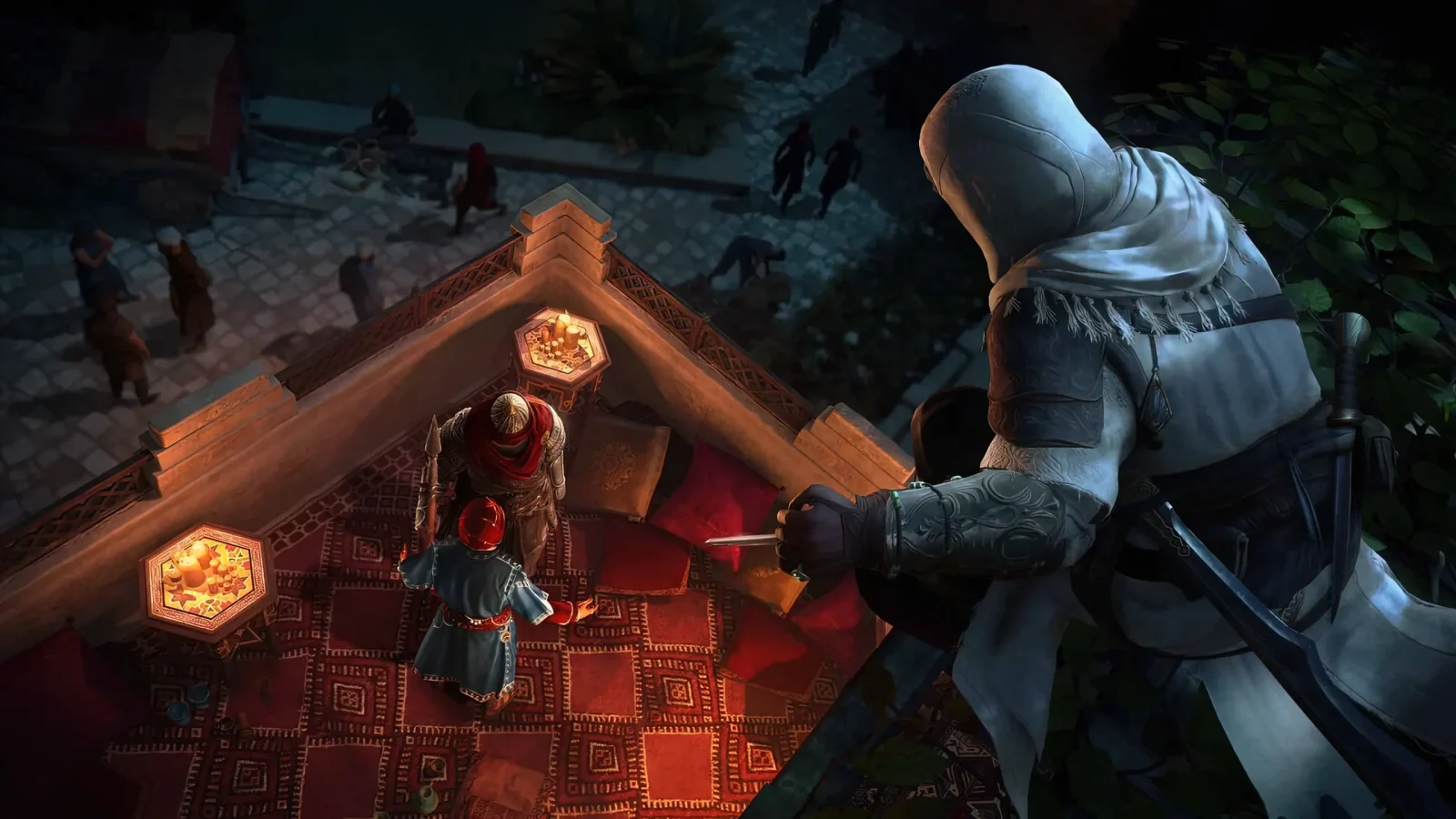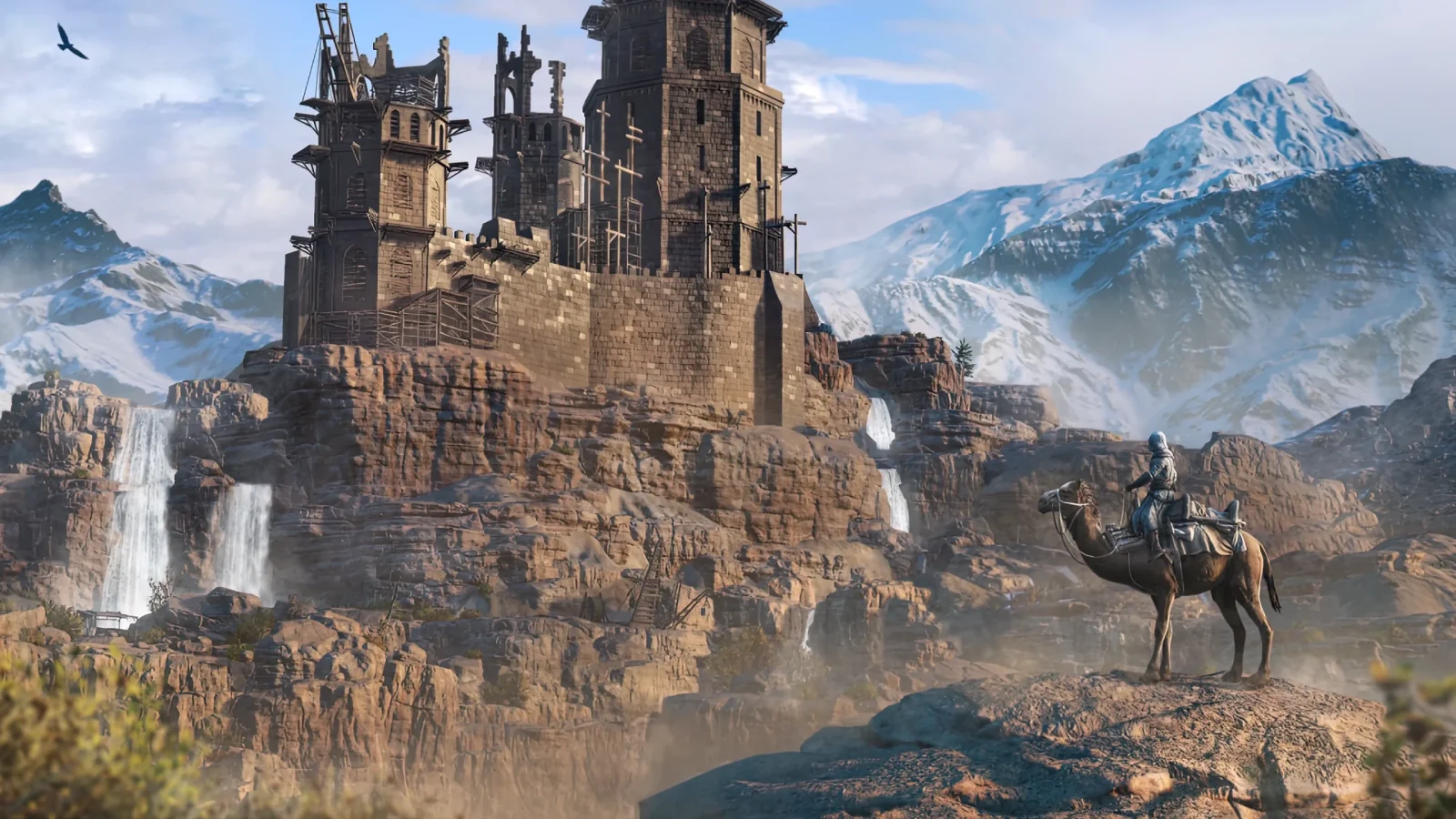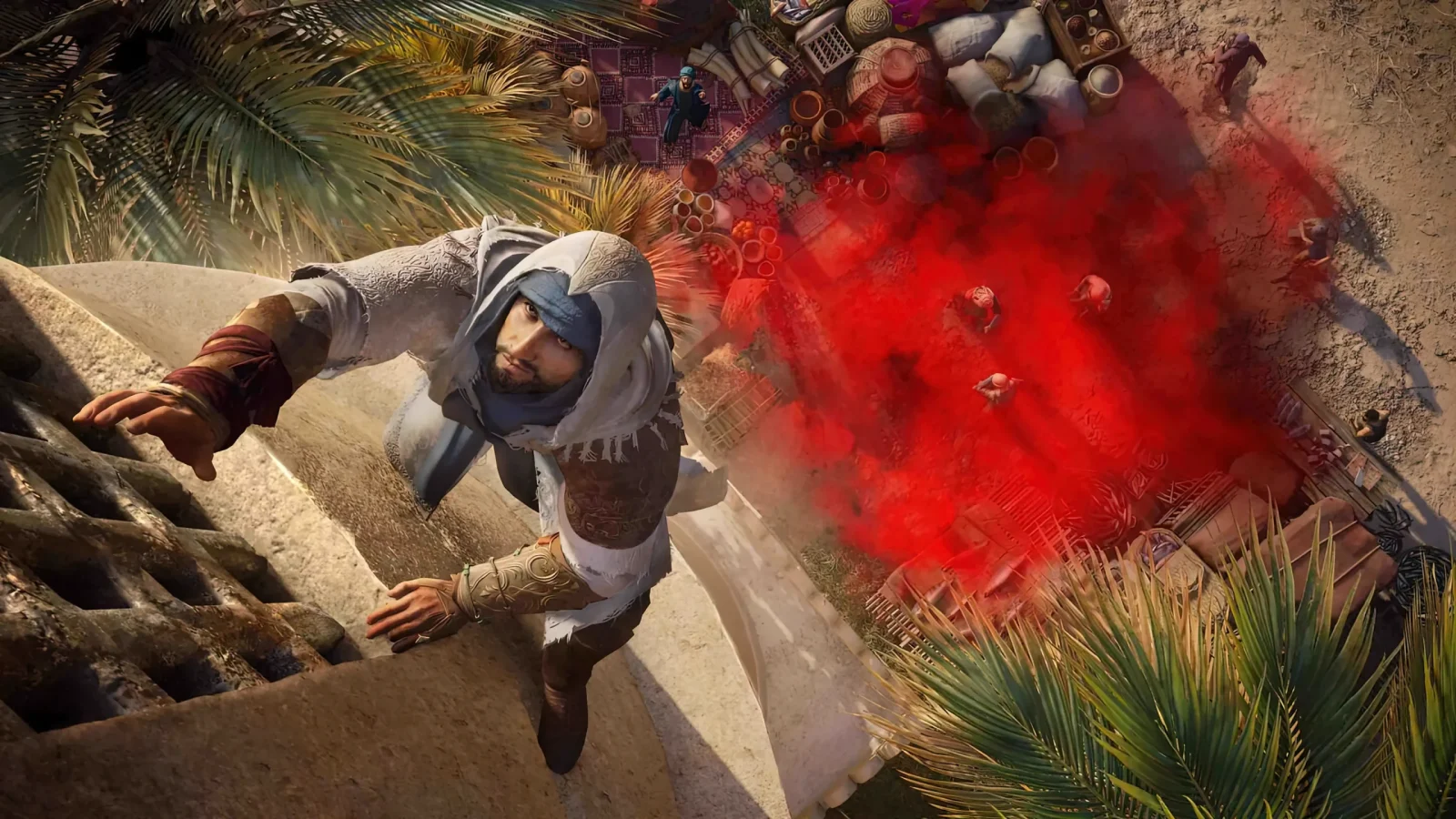The Assassin’s Creed franchise is one that needs no introduction, as it’s been a staple in the gaming industry for the past 16 years. The newest entry in the series, Assassin’s Creed Mirage, serves as an homage to the first few AC games, by bringing back social stealth elements along with an emphasis on parkouring. Set in 9th century Baghdad during the anarchy at Samarra, Mirage follows Basim Ibn Ishaq in his coming of age story as he joins the brotherhood of hooded assassins.
Although Mirage is technically still considered an open-world game due to the freedom of exploration and taking on quests in any order you wish, the overall progression and campaign is quite linear. The main story revolves around investigating different areas in search for members of the Order of the Ancients and assassinating them. However, it’s not clear from the start who these individuals are given that they live double lives and keep their real identities a secret, so you must piece together clues in the Investigation board and deduce what your next move is. Don’t worry, this isn’t a Sherlock Holmes game, and the most investigating you’ll do is search for evidence inside a house. The game will do the rest for you.
Aside from gunning for the main objective, there’s a wide variety of side activities to partake in as well. The concept of synchronization returns in Mirage, which has you scaling tall towers or landmarks to survey an area. This also acts as a fast travel point once you unlock it. Big props to Ubisoft for including some refreshing optional quests to stumble upon, called Tales of Baghdad, asking you to interact with various citizens and helping them out. The one that stood out to me was when I stumbled upon a boy attempting to do the leap of faith, and needed some encouragement from the master assassin himself! The rest of the map is littered with points of interest, including shops, treasure chests, and artifacts.
Completing the campaign takes around 15 hours depending on difficulty and how much you explore. Getting 100% completion will probably take somewhere between 20 and 30 hours. This also factors in if you watch all the dialogue cutscenes at default speed, or skip through them after reading the text on the screen as it pops up. I did find quite a few buggy instances where button prompts would not show up in scenarios, forcing me to reload the game in order to fix it. The rest of my playthrough was mostly bug free, and the game never crashed or froze on me.

One of the main roots of Assassin’s Creed lies in parkour and Ubisoft has brought it back full force in Mirage. 9th century Baghdad is your playground this time, filled with different architectural terrain for you to climb, swing, and traverse through. Jumping between rooftops, pole vaulting across alleyways, walking on tightropes, scaling tall towers, and figuring out how to get inside a fortress are all things you can expect to do! Baghdad’s more compact, urban-style map-size compared to Valhalla’s location allows for more parkour freedom and versatility. Unfortunately, the back ejects and side ejects from past AC titles are not included here, so Basim won’t be jumping back from one location to the side in one motion.
The other signature AC mechanic brought back in the limelight is stealth and it’s baked to the core here. Though you do have the option to approach scenarios any way you prefer, stealth is the one that is ultimately recommended and is more rewarding. Various hiding places are conveniently placed for you to take advantage of, ranging from abandoned stalls and empty benches to bales of hay and bushes. As you progress in the campaign, several useful tools are also unlocked to promote stealthy playstyles, including blow darts, smoke bombs, and throwing knives. In Mirage, Basim also has a skill known as Assassin’s Focus, which pretty much lets him slow down time, pick out targets, and chain assassinate them all in one go. It’s pretty sick.

Alright so what if you don’t want to be one of the shadows and prefer to fight your battles head on? Well Basim has been expertly trained under the brotherhood and definitely knows his way around a sword. Light and heavy attacks are mapped by pressing the R1 button and holding it, respectively. An emphasis is put on parrying incoming attacks with L1, or dodging unblockable red-colored attacks with the square button. Dodging and attacking take up stamina, so be mindful of it. Because the game encourages you not to fight head on, you can quickly get overwhelmed if multiple enemies are attacking you at once, so it’s better to lure enemies out one by one for a duel if you prefer combat.
I found enemy types to be quite limited, with pretty much only two types overall. The first is just your grunt soldier type, either equipped with a sword, spear, or a ranged bow, and goes down pretty easily. In fact, successfully parrying them once depletes their stamina bar entirely and allows you to go in for an instant kill. The other type of enemy is the bigger brute ones that have plated armor. Attacking them from the front proves futile as your sword can’t pierce through their heavy metal plating, so you must either rotate behind them to attack their backs or throw knives at their feet to stun them. Aside from these 2 main archetypes and the occasional antagonistic wild animal (dog, snake, etc), there isn’t much variety, which is a disappointment.
Movement gets the job done, but does feel less seamless and smooth when compared to other open-world games. You won’t necessarily get stuck on terrain or fail to make certain jumps but the overall feel of it does come off a bit janky. There’s no jump mechanic by default, as you can only jump onto a ledge or building if you are next to one, but the button inputs are sometimes unresponsive. The same problem persists when you are trying to jump down from a ledge too. Overall movement can feel sluggish at times due to Basim not responding to your inputs. I found this to be a concern during combat as well, as sometimes pressing the attack button wouldn’t register and Basim would just stand there while the enemies were slicing and dicing him up.

Progression here is not like your typical role playing game, as there isn’t a traditional leveling up system where you earn experience points. You actually gain nothing from assassinating guards or getting into fights with strangers, aside from the occasional coin from their dead bodies. Instead, you acquire skill points through completing main missions and side quests that then allow you to unlock new abilities in a dedicated skill tree. This tree is divided into 3 categories: Phantom, Trickster, and Predator – each serving different purposes. For example, one tree unlocks the chain assassination ability, another increases your max elixir size, while the last upgrades the abilities of Enkidu, your bird companion. Money is mostly acquired through pickpocketing strangers, which is done via a Quicktime event, looting various crates and jars, as well as discovering hidden treasure chests.
In terms of gear and kitting out Basim in the best possible loadout, you have a main weapon slot, a sub weapon slot, a talisman slot, an armor slot, a dye slot, and a costume slot. Ubisoft has brought back the ability to dye Basim’s outfits so that you can have him look the way you want him to look! Both main and sub weapons, along with your armor, inherit passive abilities, such as making less noise when assassinating enemies, and can be upgraded at dedicated blacksmiths and garment shops. The costume slot is entirely cosmetic, and is only for changing how he looks without overriding his armor’s stats, but can also act as a disguise in certain scenarios.
The evocative musical score adds depth to the game’s atmosphere, capturing the essence of ancient Baghdad. Voice acting is equally superb, with actors conveying the emotional nuances of their characters effectively. It’s great to see Ubisoft bring back Arabic as a voiceover option. The dialogue is well-written, drawing players into the political intrigue and personal drama of the story.

On the visual front, the world of Mirage is a grand spectacle. From the bustling streets of the Bazaar to the luscious gardens of the Round City, every location is a work of art. The attention to historical accuracy is commendable, with architecture, clothing, and landscapes meticulously recreated. The game’s lighting effects, weather transitions, and character animations are nothing short of breathtaking, making the exploration of this ancient world a truly immersive experience. The facial animations of characters could use some work though.
Performance-wise, Assassin’s Creed Mirage fares fine on the PlayStation 5, with nothing outstanding or terrible. Initial load times are not super fast, as it takes upwards of 15 seconds from a fresh launch. The DualSense Controller features are barely utilized, apart from rumbling during combat. The game does offer both a high frame rate and quality mode, but even the former fails to keep a stable 60 fps at all times. Like all Ubisoft titles, Mirage employs the classic cursor style menu navigation, turning the controller into a mouse cursor – I’m not a fan.. There are also microtransactions, but these are in the same vein as the previous games – cosmetics to change the look of your character, horse, or armor. There are no pay to win mechanics, thankfully, and all of these cosmetics can be found and earned in game, if you search hard enough.
It’s important for games nowadays to include a suite of accessibility features and Mirage does just that. There are 3 difficulty modes offered: easy, normal, hard, that can be changed at any time in the settings menu. The developers have also included options such as guaranteed pickpocketing, aim assist, and the option to turn on the iconic Assassin’s Creed color filter. Of course, menu narration and the ability to toggle subtitle size, color, background, and much more are included as well.





















